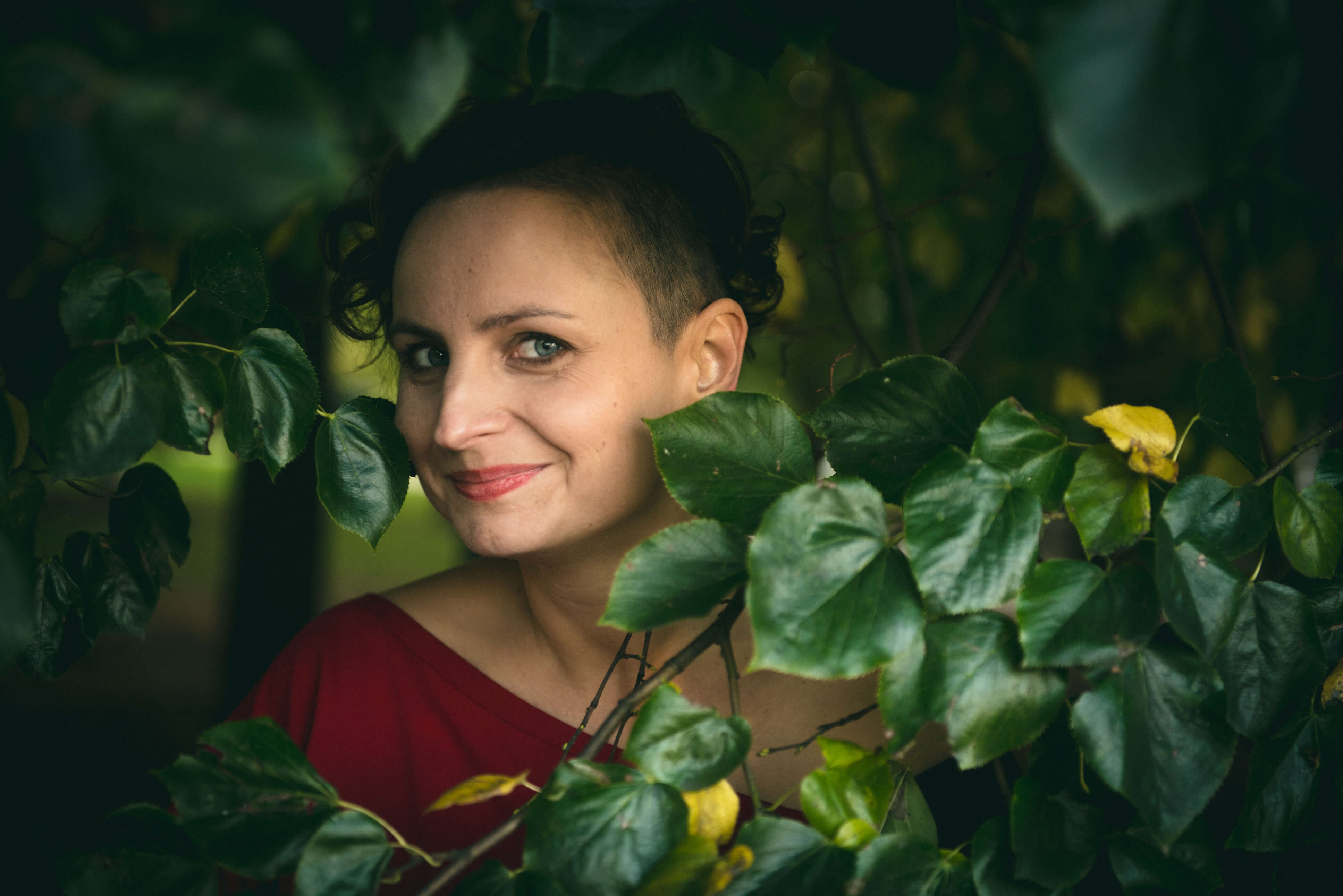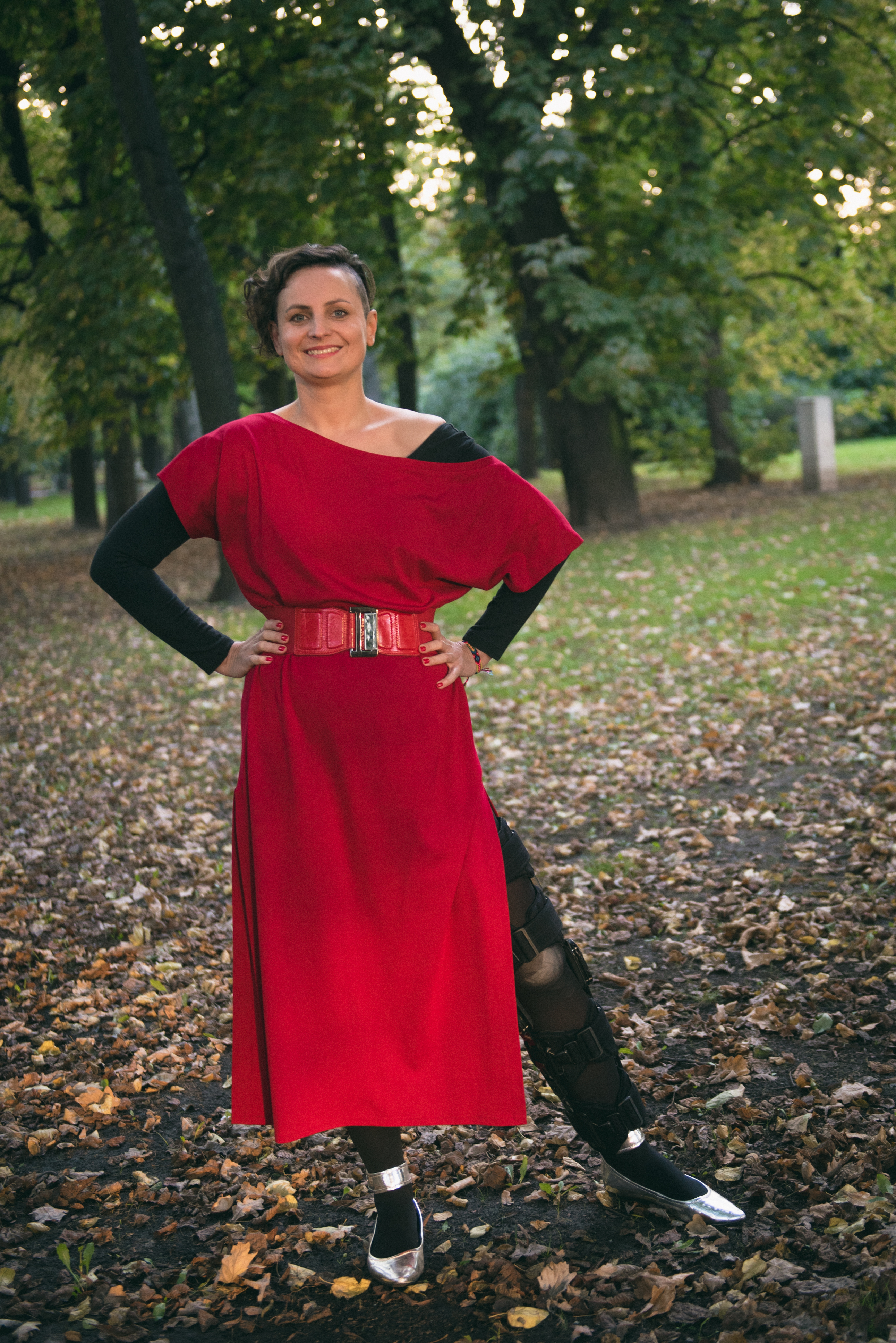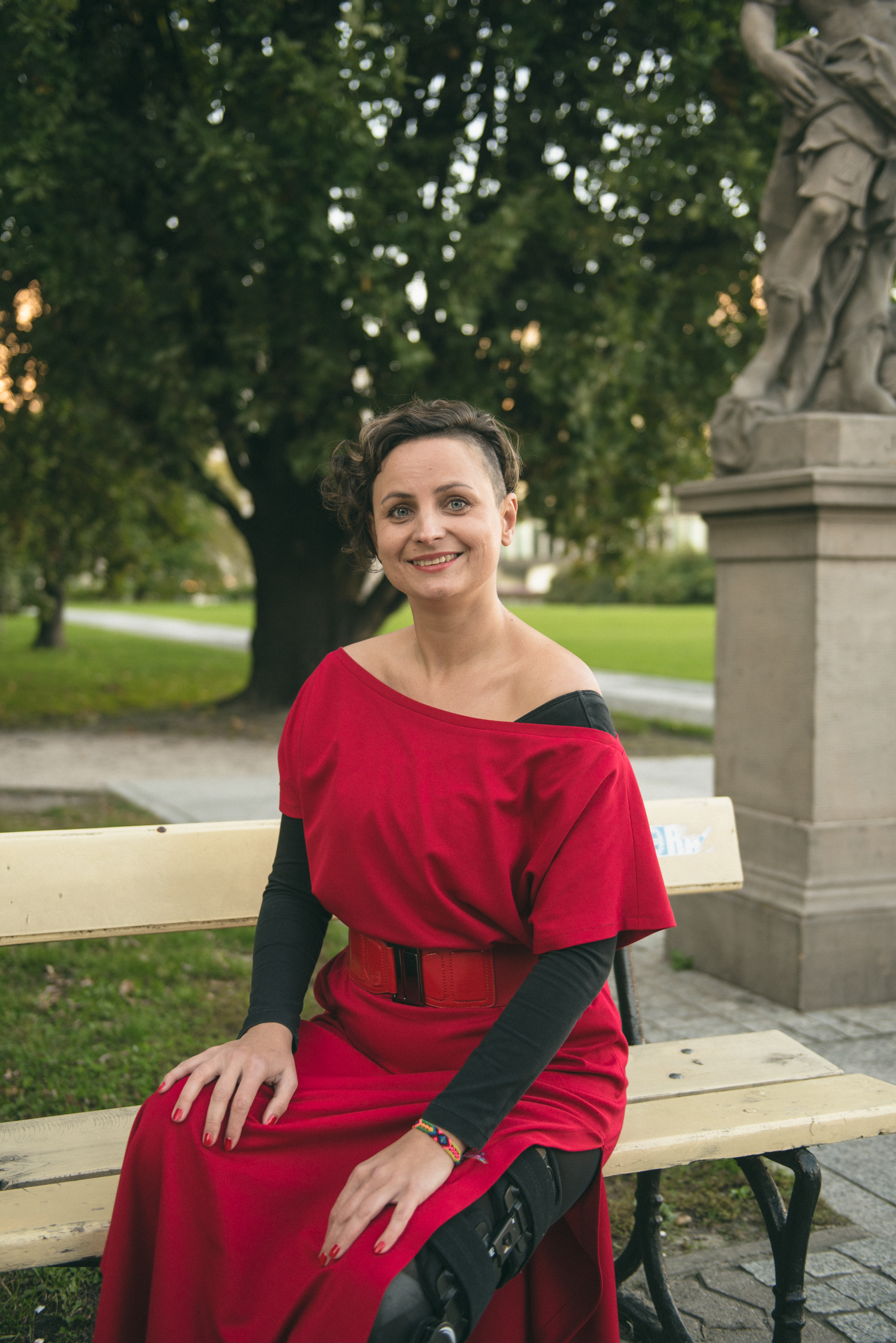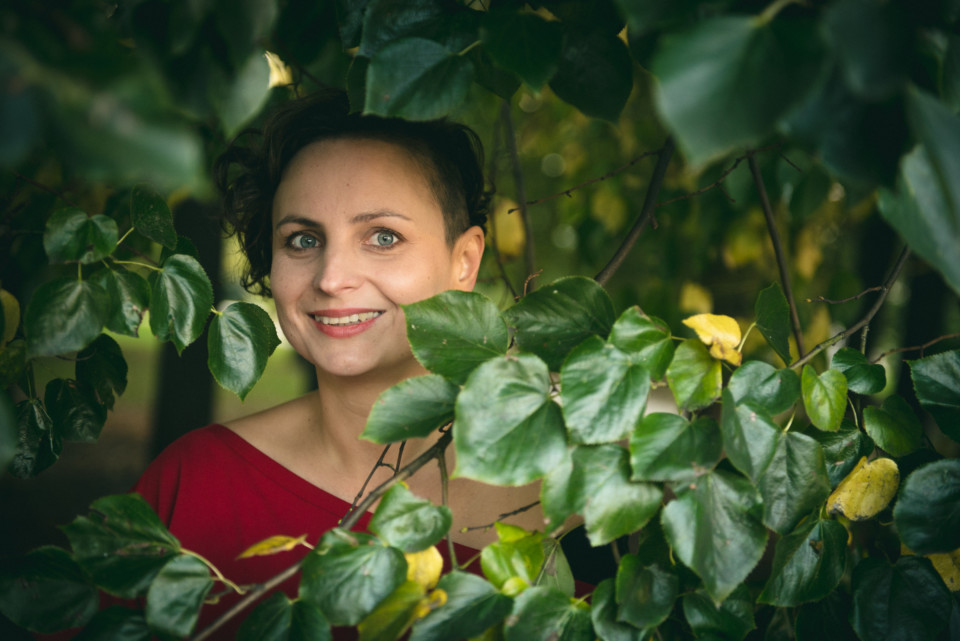N A D I A
Warsaw | 2017

N A D I A
City — Warsaw
Age — 38
Love life — Married, son (8)
Profession — Start-up enterpreneur and cofounder and performer of SzurSure performative collective
Years in Warsaw — 15
Location — Centre for Contemporary Art Ujazdowski Castle
T H E W A R S A W S T O R I E S
‘NOW I HAVE
TO LEARN
TO BE HAPPY
WHEN SOMETHING
IS WRONG’

- What makes you really happy?
“Right now I’m in a personal crisis, because I am a dance performer and I have a knee injury. I was completely unable to move for several weeks. Of course basic things like the love for my husband and son make me happy as well, but because of this injury, I found out that movement is even more important to me than I thought. It will take months for me to be able to dance again. I hope I will use my body more consciously and value it more.”
- What is your best personality trait?
“I’m not as scientist-smart, but I am clever and I understand a situation very quickly. For example, when a task is set during a workshop, I immediately understand what to do and how to do it. But it has a disadvantage: sometimes my way is not the best way. I could have chosen better if I would have thought longer about it. But it energizes me, I just go and do it.” - What is your biggest struggle in life?
“Normally I try to look on the bright side of life. I focus on the things I want and I try to see the beauty of every moment. I try to apply this to every situation. If I meet someone who’s annoying, I try to direct our conversation to a subject that I will enjoy. I am not trying to change that person, but I try to find some areas of common interest. I am always actively trying to make my life satisfying. And currently I’m not doing a good job. Because of my injury, time is flying away and I am not doing positive things with my life. It makes me feel bad.” - What is your biggest life lesson so far?
“My injury obviously is a lesson. I think it tells me this: it’s easy to be happy when everything is okay, now try to be happy when something is wrong. I was really lucky for many years, I felt really good about myself and I achieved a lot of things I thought I never could. For example, after fifteen years of dancing as a hobby, I am making art with my performative collective. It’s like a gift to me. I never thought I could do such things. But then I hit rock bottom. Physically and psychologically I’m in a very bad place. I feel like someone without a home. But when I realized I had hit rock bottom, I found a way to feel better. I meditate to feel good and practice with my knee three times a day and I do knee meditation.”

- What is your biggest disappointment in life?
“I can’t really discuss it. I hope this disappointment will change someday.” - What is the best thing that ever happened to you?
“My spiritual development and my sensitivity to art. Those things give me a lot of pleasure, they give meaning to my life and are a way to ease problems. Of course I could also say that having a child makes me happy, but I think I’m closer to myself than to anybody else. Spirituality and art are what I want to live for, they are connected to me. When I create, I feel like I am connected to some divine source of creation. I felt that when I was a kid, but I didn’t realize it.” - What is the best advice someone ever gave you?
“The father of my friend shared his life motto with me. He said: ‘We are super, so everything will be super!’ It really helps me believe that everything will be super.” - What advice would you give other women in Europe?
“Don’t look at what other people do or don’t do. And don’t think about what other people might think about you. Go your own way. I never worry about how other people might interpret my behaviour. If I want something, I make it happen.” - What is your biggest dream?
“Being happy. As a teenager I wished this for myself every year on Christmas Eve. I still wish that, because it’s a process. Sometimes I’m happy, sometimes I’m not. But I think it’s a good goal, because life is changing all the time. At the moment being happy could be my goal as well. It’s like a state of being in harmony with the world.”
- What is your biggest fear?
“I don’t think about fears. I’ve been on several spiritual workshops where people spoke about their fears. I was wondering why I don’t have fears and I couldn’t find the answer. Maybe because I have a positive way of thinking. Or maybe because it’s a dark room that’s closed and I don’t go there very often, so I don’t know what’s inside. Of course I have to have fears. If I start to think about it, there are some situations I really don’t want in my life. For example, troubles with my family’s health or my own. And I wouldn’t want to be in a financial crisis with my company.” - What does Warsaw mean to you?
“It’s my home. And it’s the place where I have developed infrastructure for things I need to feel good in the city, like dance workshops, dance festivals, exhibitions. I need culture to be happy, that is why I love to be in Poland. I was born in the former USSR, in Belarus. I came to Poland to study Economics when I was seventeen. I stayed here after my studies because it is more developed than Belarus. Maybe I should go back to Belarus to set up all the things I love over there, to spread the culture and joy, but I don’t want to do it now. I don’t want to be a missionary. I prefer to do things here. It is very satisfying that when you have an idea and you’re all fired up, you can make it come true in Warsaw. We have to keep it low-budget, but the idea fuels us. Compared to other Polish cities I’ve lived in, Warsaw has a different energy. I can feel it, but I can’t explain it. It’s about how people are behaving on the streets. People are in a hurry in some places, while other places are for resting and fun.” - How would you describe a typical Warsaw woman?
“I’ve met a lot of independent women here. They’re more independent than in Belarus. They are conscious about what they want from life and are taking action to achieve that. That is typical for the biggest city in a country and for some educated levels of society. Historically, the place of women was in the kitchen, about doing exactly what society expects: having babies and keeping the family healthy. But as a rule, when women become better educated, they become more conscious about what they really want from life. I think more and more women are going after that. Some women consciously choose to remain in the traditional system. I do believe that it’s natural for women to take care of the children and cook dinner. I think that a lot of us are built like that, that the psychology of women is focused on those activities. That is why sitting at home with kids will make some women happy. But not me. I love to take care of my kid and the house, but I wouldn’t be happy as a stay-at-home mother. I need other ways to actualize myself. My direction in life is to find happiness in both.”
Photos by Marta Ankiersztejn-Węgier

